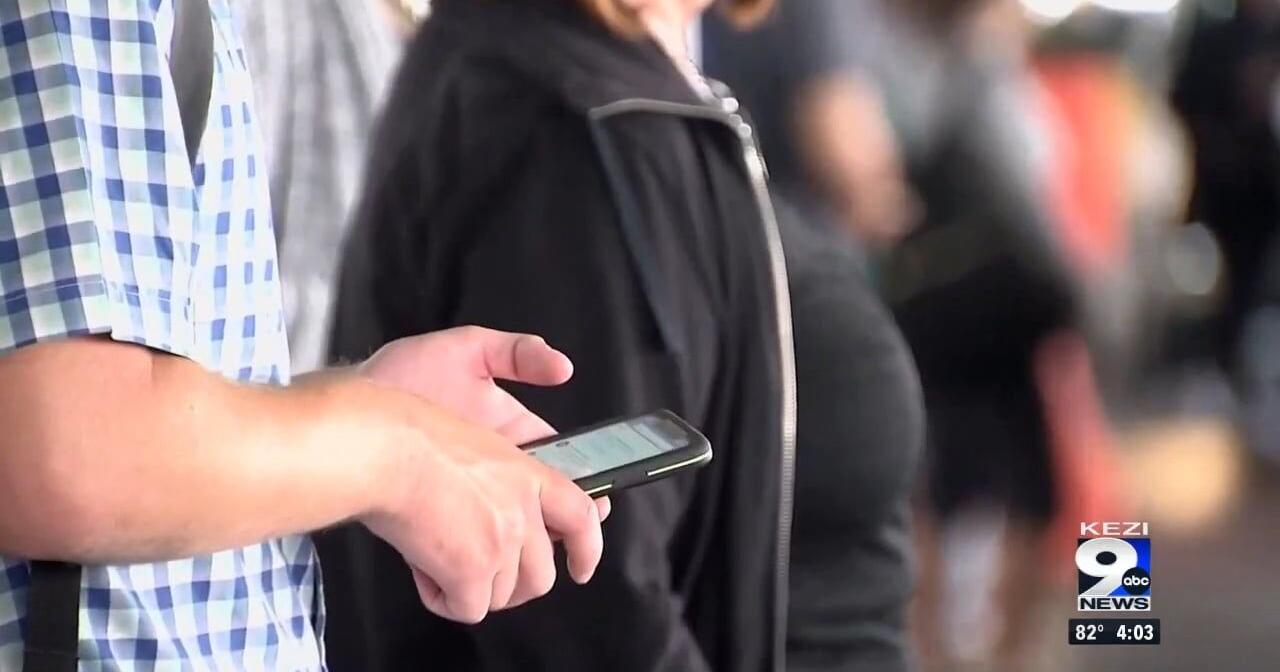Scammers are posing through banks and texting victims to try and steal personal financial information.
Smishing is a word used to describe scammers posing as banks through text messages.
Scammers are now posing as banks through emails, texts, and phone calls, to steal personal financial information.
EUGENE, Ore. – Scammers are disguising themselves as banks and contacting people as a way to try and steal personal financial information.
Scammers posing as banks is not a new problem, but the way they are doing it is evolving. Matthew Wilson, vice president of risk and administration at Oregon Community Credit Union, said scammers come at it from all angles.
“Most people are familiar with phishing, which is the old email attack,” he said. “And then you have ‘vishing’ which is social engineering, basically where they’re calling you and talking to you over the phone. And then you have ‘smishing’ which is the SMS text messaging attacks.”
Smishing is a word used to describe scammers posing as banks through text messages.
As text scams became more common, they came up with the word “smishing” to describe the attack.
“They’ll get a listing of phone numbers that they know are mobile numbers,” Wilson said. “And then they’ll try to make imposter websites and send text messages out that would direct people to those websites, try to get their credentials, try to do anything so they can take over your bank accounts or other financial accounts.”
Wilson said smishing is the type of scam most often seen. But as they see more and more of these scams, they know firsthand that victims are not the only ones affected. Wilson said the credit union also sees the impact on how their customers are left feeling as a result of these scams.
Scammers are posing through banks and texting victims to try and steal personal financial information.
“Loss of trust,” he said. “Members can think that it’s just happening to our credit union, instead of it happening across the country.”
Wilson said the effects are also felt in how the credit union operates.
“It increases call volume traffic definitely,” he said. “It increases any of our secure messaging traffic. People are wanting to know, members and nonmembers alike, is this real? Is this fake? Do I have a problem? And all of that traffic makes it very difficult to help all our members.”
As a result, OCCU has had to adjust how they do things.
“And so we’ve worked continuously adding new software and new services to try to get in front of it as well as make it convenient to let us know,” Wilson said. “I think most of it is just making sure we’re teaching our staff to be empathetic, to understand how traumatic that can be and how violating it is.”
The convenience of mobile banking today also makes these scams an easy trap to fall into.
“The fraudsters know that the conveniences are out there,” Wilson said. “They know people don’t want to spend a lot of time evaluating those things so it just really comes back to staying vigilant and watching those messages and not just clicking that link because it’s convenient.”
Laura James received a scam message by someone posing as OCCU. Even though she does not have an account with them, it was still convincing.
“My initial reaction was that it was a scam, but then I had to kind of stop and think about it because it does look so legit,” she said. “I think one of my family members maybe has an account and has me listed as something, and maybe they can’t get in touch with them. You know your mind kind of starts just reaching for reasons that you want it to be legit because you don’t want to dismiss something.”
Wilson said the credit union has a specific tip for people when they receive a suspicious text message.
“Go into your online internet banking profile, and you can set up alerts to let you know when real activity has happened on your account,” he said.”So if you get a message that says, ‘We just saw a debit card transaction,’ you should be already knowing this is the activity that’s happened on your account.”
After her own first hand experience, James has a message for people who find themselves in the same position.
“I do understand that it’s easy, but if people just calm down and take a minute, don’t freak out, and just do a little bit of personal protective research just to verify,” she said.
Officials with OCCU said they continue to invest in training and security efforts, but also work to educate the public on what to look for.
{{description}}
Email notifications are only sent once a day, and only if there are new matching items.
Your browser is out of date and potentially vulnerable to security risks.
We recommend switching to one of the following browsers:
Local credit union says scammers are targeting people through texts … – KEZI TV

